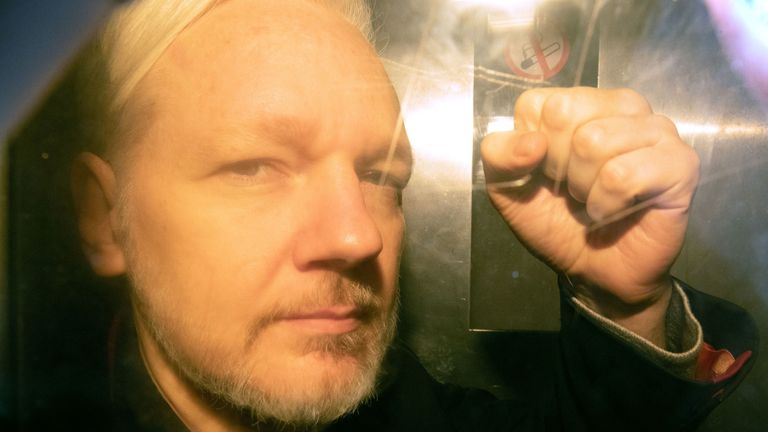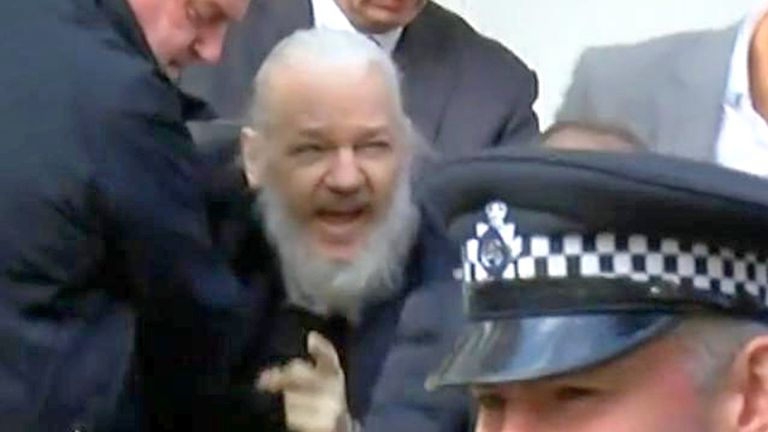Julian Assange: WikiLeaks founder faces 17 new US charges
Julian Assange is facing 17 more charges in the US for allegedly receiving and publishing classified information.
The US claims his actions “risked serious harm” to the country after he published thousands of secret and classified documents.
It filed an 18-count indictment on Thursday, which includes an initial indictment made public last month.
The initial indictment accused the WikiLeaks founder of conspiring with former army intelligence analyst Chelsea Manning to gain access to a government computer.
Assange is now facing further charges which allege he conspired with Manning to obtain and disclose national defence documents, including State Department cables and military reports on the wars in Iraq and Afghanistan.
The charges claim Assange received classified documents from Manning – some of which included the unredacted names of US military sources – and published them on WikiLeaks, including a list of “Most wanted leaks”.
The US is seeking the 47-year-old’s extradition, after he was evicted from the Ecuadorian embassy in April.
He is currently being held in prison in London, serving a 50-week sentence for skipping bail when he fled to the Ecuadorian embassy in 2012.
Manning is being held in a Virginia prison on a civil contempt charge after being convicted of providing classified documents to WikiLeaks.
A lawyer for Assange said the espionage charges were a “threat” to all journalists.
Barry Pollack said the indictment charges Assange with “encouraging sources to provide him with truthful information and for publishing that information”.
WikiLeaks has tweeted in response to the charges: “This is madness. It is the end of national security journalism and the first amendment.”
The website describes itself as specialising in the publication of “censored or otherwise restricted official materials involving war, spying and corruption.”
The case has sparked conversation about press freedom and whether Assange acted outside of usual journalistic practice.
However US department officials maintain Assange strayed far outside First Amendment protections.
“Julian Assange is no journalist,” said assistant Attorney General John Demers, the Justice Department’s top national security official.
“No responsible actor, journalist or otherwise, would purposely publish the names of individuals he or she knew to be confidential sources, exposing them to the gravest of dangers.”
Under extradition rules, the States only had 60 days to add more charges following Assange’s arrest in London.
More follows…
Source: Read Full Article




